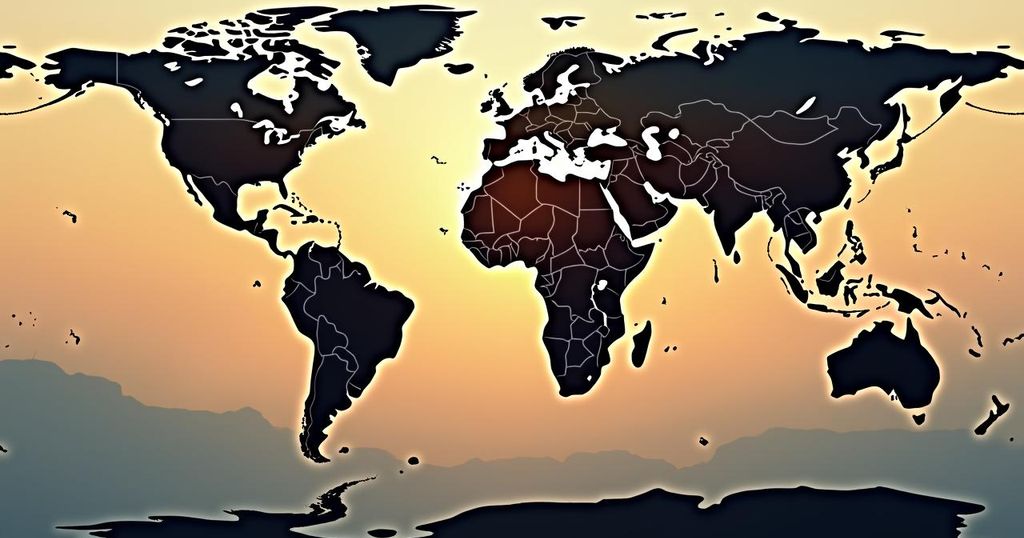Record Drought: The World’s Rivers Suffer in 2023

In 2023, the UN weather agency reported the driest conditions for global rivers in over thirty years, exacerbated by record temperatures and glacier melt, leading to significant water scarcity that impacts billions of people. The WMO’s report highlights urgent calls for improved data collection and management of water resources in response to climate change challenges.
In 2023, the United Nations weather agency reported that the world experienced the driest year for rivers in over thirty years. This unprecedented dryness coincided with record high temperatures that diminished water flows and exacerbated drought conditions in various regions. The World Meteorological Organization (WMO) indicated significant glacier melt over the last five decades, threatening the long-term water security for millions. During a press conference, WMO Secretary-General Celeste Saulo emphasized that water is a critical indicator of climate change, highlighting distress signals in the form of extreme weather patterns that negatively impact lives, ecosystems, and economies. The WMO’s “State of Global Water Resources 2023” report examined not only rivers but also other water sources including lakes, reservoirs, groundwater, and glaciers. Alarmingly, approximately 3.6 billion people currently lack sufficient water for at least one month each year, a statistic that is projected to rise to five billion by 2050. Agricultural consumption constitutes 70% of the total water drawn from these hydrological systems. 2023 marked the hottest year on record and the previous summer the hottest ever, prompting concerns about another potential annual heat record in 2024. Stefan Uhlenbrook, director of hydrology at the WMO, noted, “In the (last) 33 years of data, we had never such a large area around the world which was under such dry conditions.” Regions significantly affected included the southern United States, Central America, and parts of South America, such as Argentina, Brazil, Peru, and Uruguay, which faced unprecedented low water levels in key locations like the Amazon and Lake Titicaca. The Mississippi River basin also recorded historically low water levels, with half of the globe experiencing reduced river flows. Looking ahead, while 2024 data is not yet available, Uhlenbrook mentioned that the extraordinarily hot summer is likely to result in continued low river flows in many parts of the world, heightening the risk of water scarcity. The diminished water levels have disrupted river navigation in Brazil and contributed to a food crisis in Zimbabwe and neighboring areas. The WMO has called for enhanced data collection and sharing to better assess water resources and inform responsive actions.
The issue of water scarcity has been magnified in recent years due to climate change, leading to increasingly erratic weather patterns, prolonged droughts, and heightened risk of floods. The 2023 report by the World Meteorological Organization serves as a critical indicator of these trends, illustrating the pressing concern surrounding global water resources. With rising temperatures contributing to the depletion of river systems and glaciers, there can be far-reaching implications on ecosystems, agricultural productivity, and overall human sustenance. Mitigating these challenges necessitates improved measurement and management of water resources to ensure sufficient supply for future generations.
In summary, the year 2023 was a stark reminder of the escalating crisis of water scarcity, underscored by unprecedented dryness in rivers and alarming records of glacier loss. The WMO report presents a clarion call to address the intertwined challenges posed by climate change, emphasizing the urgency for enhanced data collection and a focused response to ensure long-term water security for millions around the world. The trends observed underline the importance of proactive measures in managing our water resources amid the changing climate landscape.
Original Source: apnews.com






